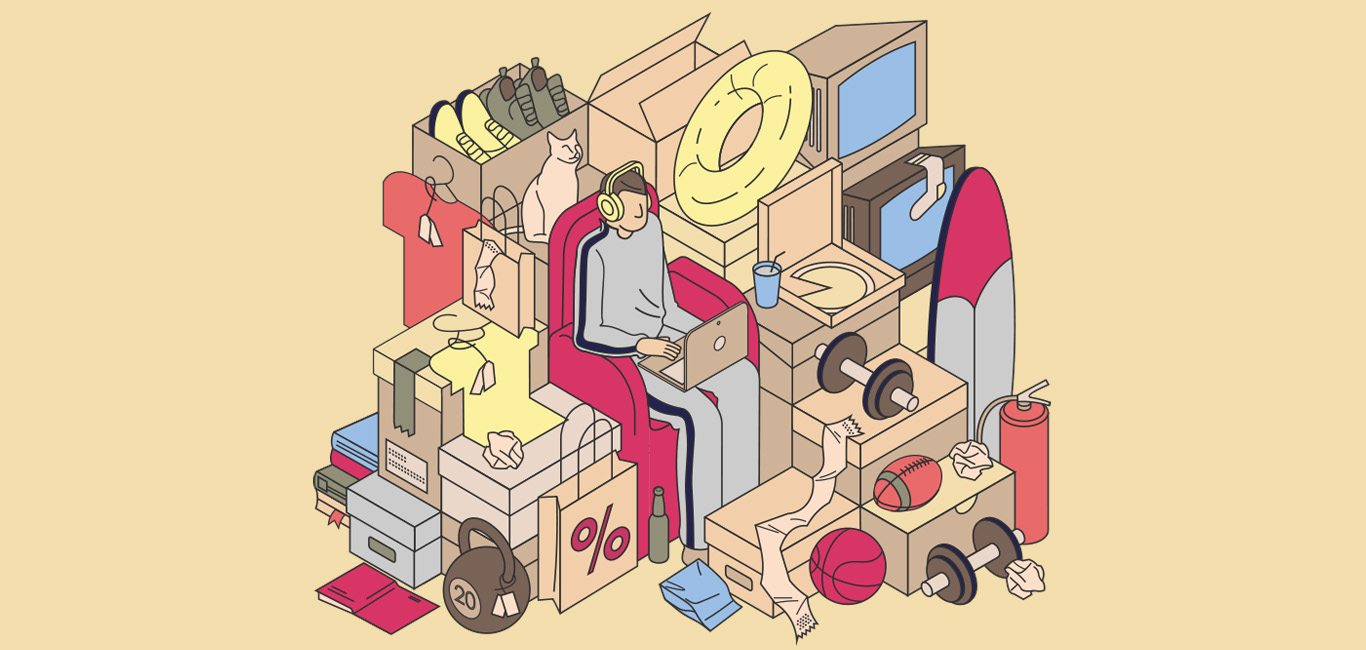
Shopping, for most people, is need-based, but occasionally it can slip into the territory of impulse, instant gratification or an escape from distressing thoughts and situations.
“Earlier, I would shop within my budget and would only buy according to my needs. But after COVID-19 and the lockdowns, my shopping increased drastically, and I don’t feel good about it,” confesses Poornima Agarwal, a Bengaluru-based educator.
“I started finding a rush and a sense of instant gratification while shopping. I also became more active on social media and got into the trap of FOMO, (an acronym for `fear of missing out’) which influenced my shopping habits. I later realised how it was mindless and now I am getting myself in control,” she says.
Is it an impulse control disorder or compulsion?
A shopping addict or `shopaholic’ is described as someone who buys things without reasoning or restraint.
Experts have differing opinions on the classification of this disorder. “It is a little tricky” to exactly classify this behaviour, according to Dr Naveen Jayaram, a Bengaluru-based consultant psychiatrist who specialises in addiction.
“Some call it impulse control disorder, like kleptomania, and some call it behavioural addiction, like gambling, internet addiction or such other kind of addiction. ‘Shopaholics’ fall under both the spectrums – impulse control and addiction.”
However, California-based Priya Sodhi, a Doctor of Psychology in substance and behavioural addictions, says it is important to establish whether giving in to the urge to shop in an unrestrained manner is an addiction or a compulsion.
“Addiction is a broad term – trying something such as alcohol or a behaviour and becoming emotionally and physically dependent on it. Compulsion, on the other hand, is a narrow term that often refers to a specific, intense need to do something,” she says. “Compulsions have been described more as a persistent thought process. People who struggle with compulsion explain [it as] feeling immense relief and relaxation from such behaviours.”
Shoppers and their types
The first type, Sodhi says, is the compulsive shopper, who buys things when feeling emotionally distressed. In the second lot is the trophy shopper who is always looking for the next perfect item. The third type is the bargain shopper who is purchasing things through sales and couponing even if the items are not needed or desired.
“Then there is also the collective shopper who will find emotional value and wholeness in (acquiring) complete sets of things, for example, a specific shirt in each colour,” adds Sodhi.
Dopamine connects the dot
Common to all types of compulsive shoppers is the feeling of a high because of dopamine, a neurotransmitter, which is activated when we indulge in addictive substances or certain behaviours.
Dopamine is a neurotransmitter or hormone that is responsible for appropriate electrical conduction in your brain which impacts one’s bodily movement, emotions and memory to name a few.
“It floods our system when we buy new things and as we keep buying new things, we need more and more of the dopamine to satisfy our need and that’s where the compulsion becomes an addiction,” adds Sodhi.
Personality and psychological traits
Poornima Agarwal got hooked to shopping during the lockdown to fill a void. She says, “I had lost my job and was not doing the activities I was doing earlier and felt a big void. I would then feel good about shopping, but that feeling was only momentary.”
Compulsive shopping can be linked directly to mood disorders such as anxiety, depression or bipolar syndrome where shopping serves as a coping mechanism for emotions they cannot deal with.
“They appear to be hypersensitive to stress in general and are impulsive when they cannot control their anxiety or discomfort. They use shopping as a way to deal with anxiety, but that behaviour ultimately increases guilt, regret, and depression,” adds Sodhi.
Buying in the digital era
In the digital era, a blitzkrieg of media advertisements seems to suggest that ‘happiness’ can be bought through commodities. This affects those who are seeking that ‘happiness’. Shopaholics are both lured and stimulated by advertising channels and media outlets, and growing consumerism in general.
“The trend is increasing nowadays because of the presence of these online platforms. In one or two cases that have come to me, there have been complaints of the house being occupied by commodities being bought online, with packets that are not even opened yet,” says Dr Jayaram.
Agarwal points out that in her case, another factor was that the inexpensive online shopping experiences were easy to access. “There are so many online shopping apps that always seem to have some discount going on. It gives a temporary high, so some other product that is not needed is purchased to feel that kick again. In the end there are piles of stuff that one does not need and there is no satisfaction in the long run,” she confesses.
Tips to quell that urge to buy
- Identify and acknowledge your addiction
- Understand and address the root cause of the problem – for example, stress or loneliness
- Seek counselling or therapy
- Set your goals for shopping
- Make changes in your daily routine
- Develop new hobbies

















